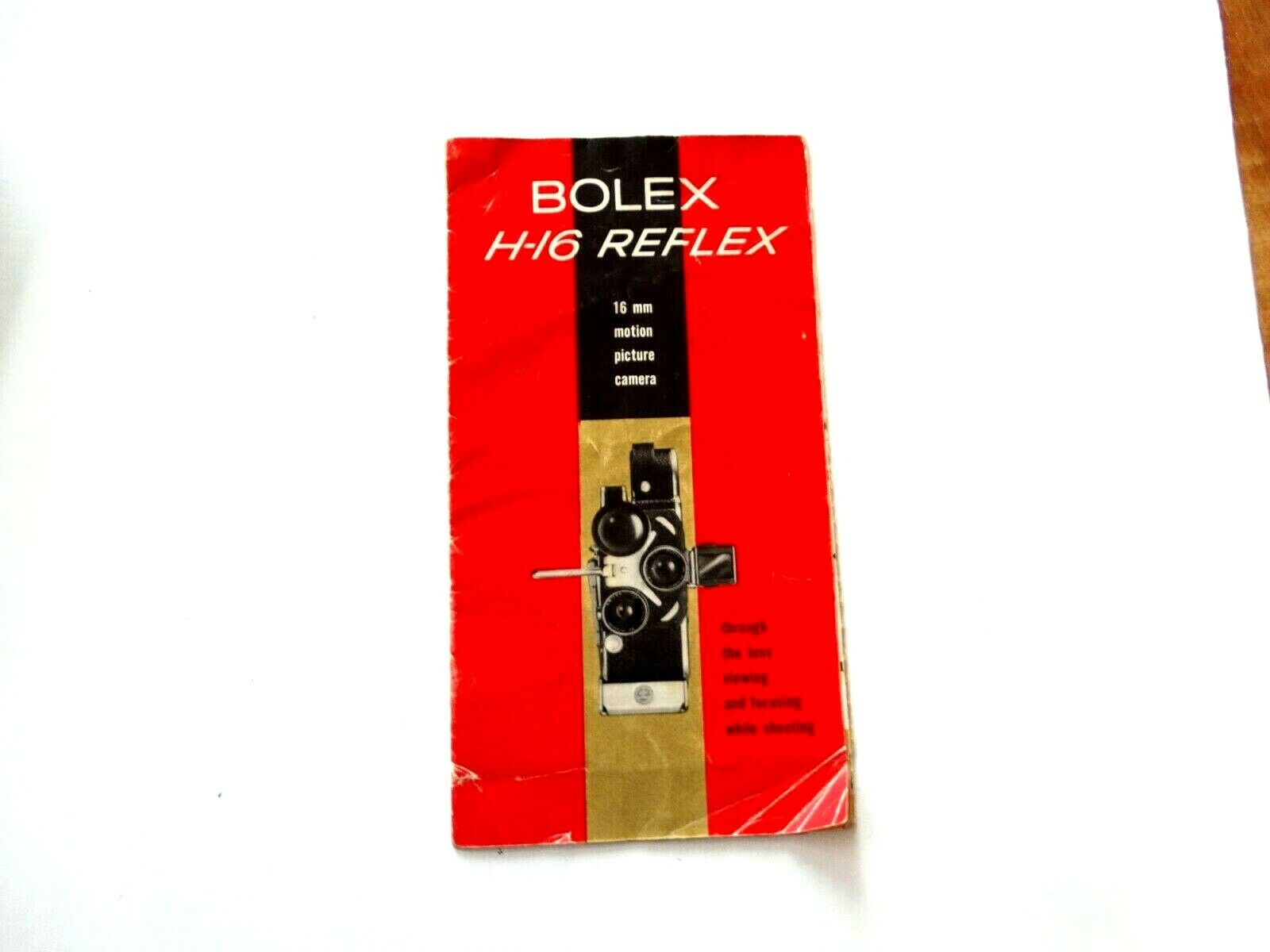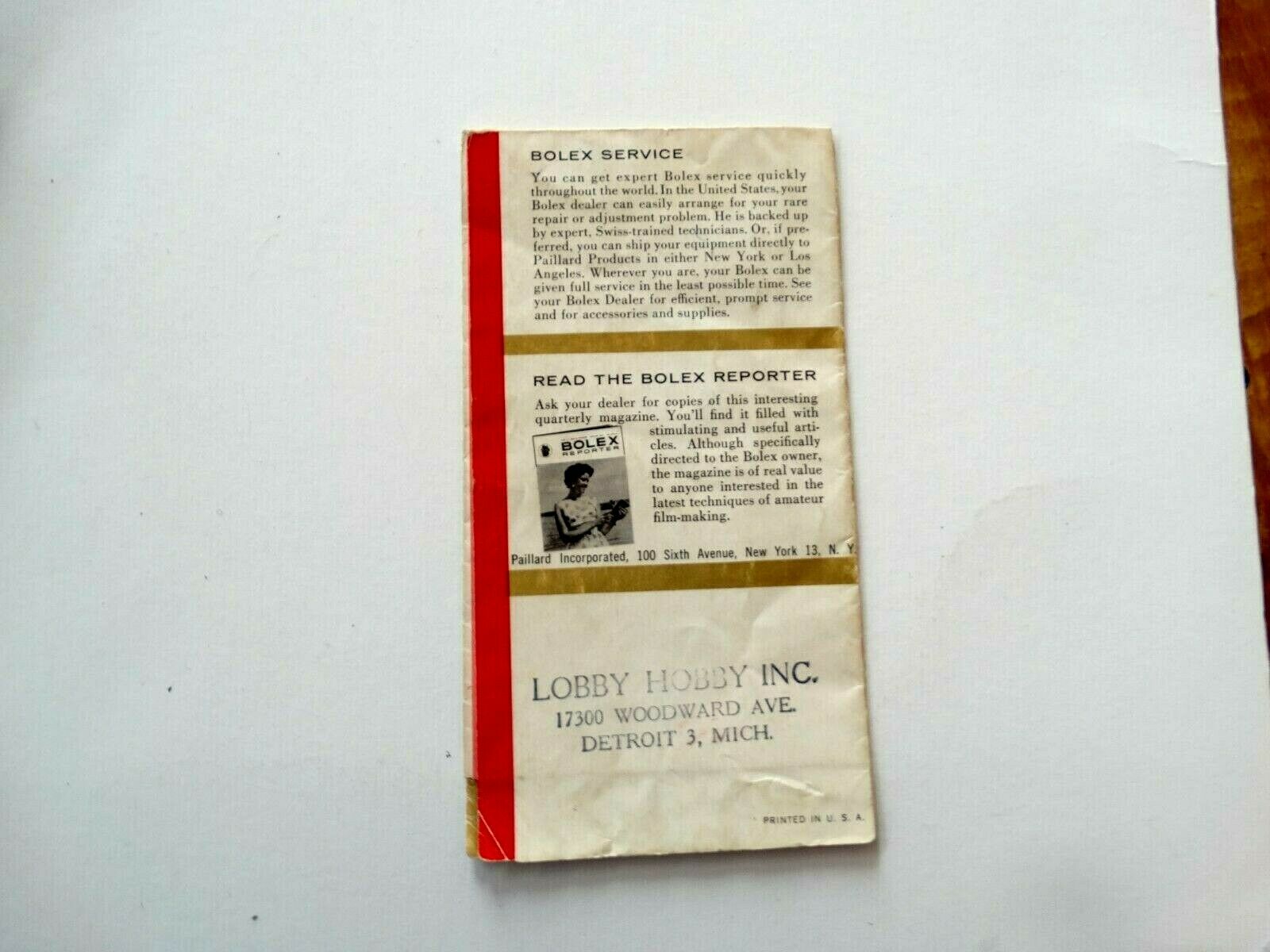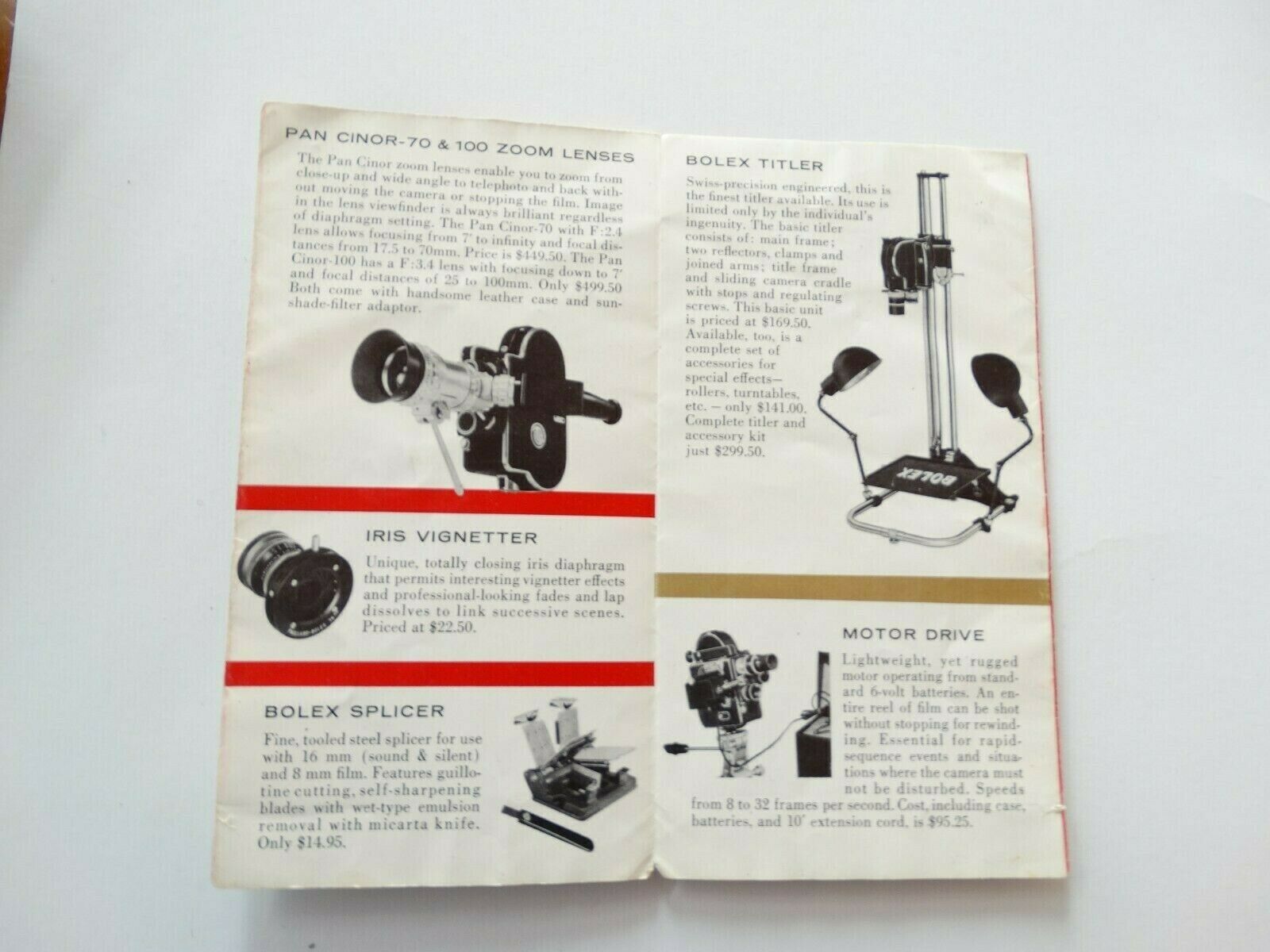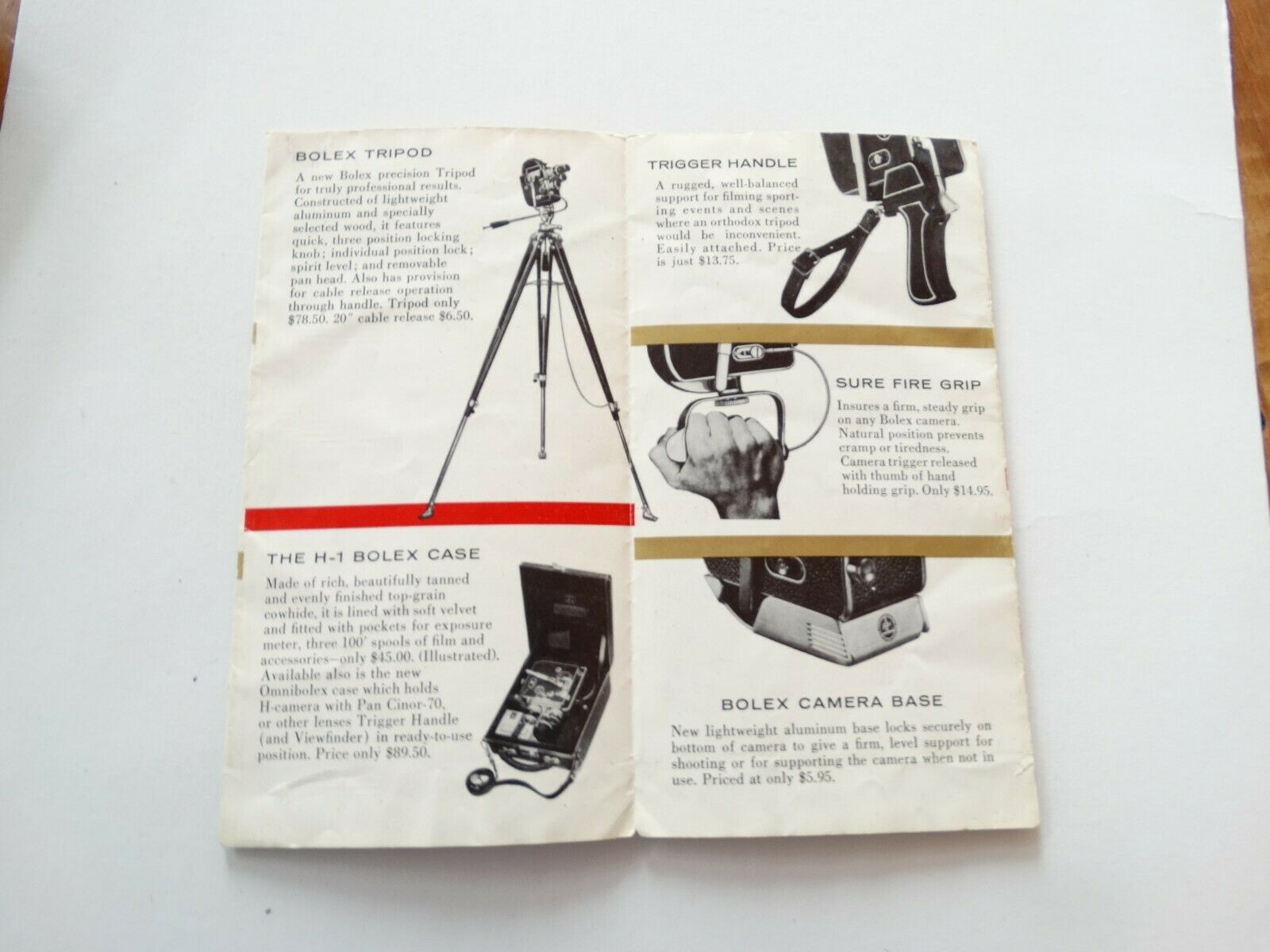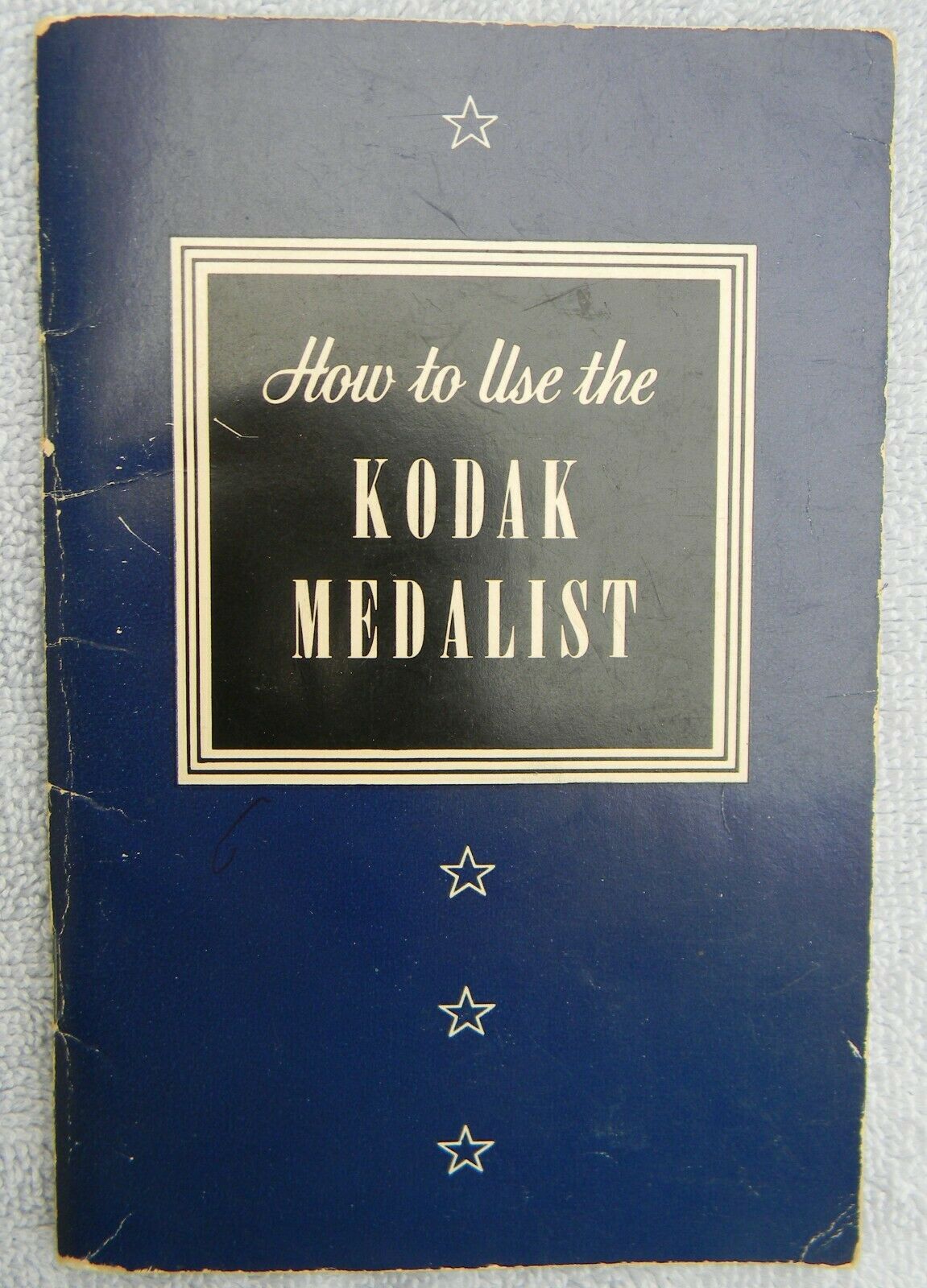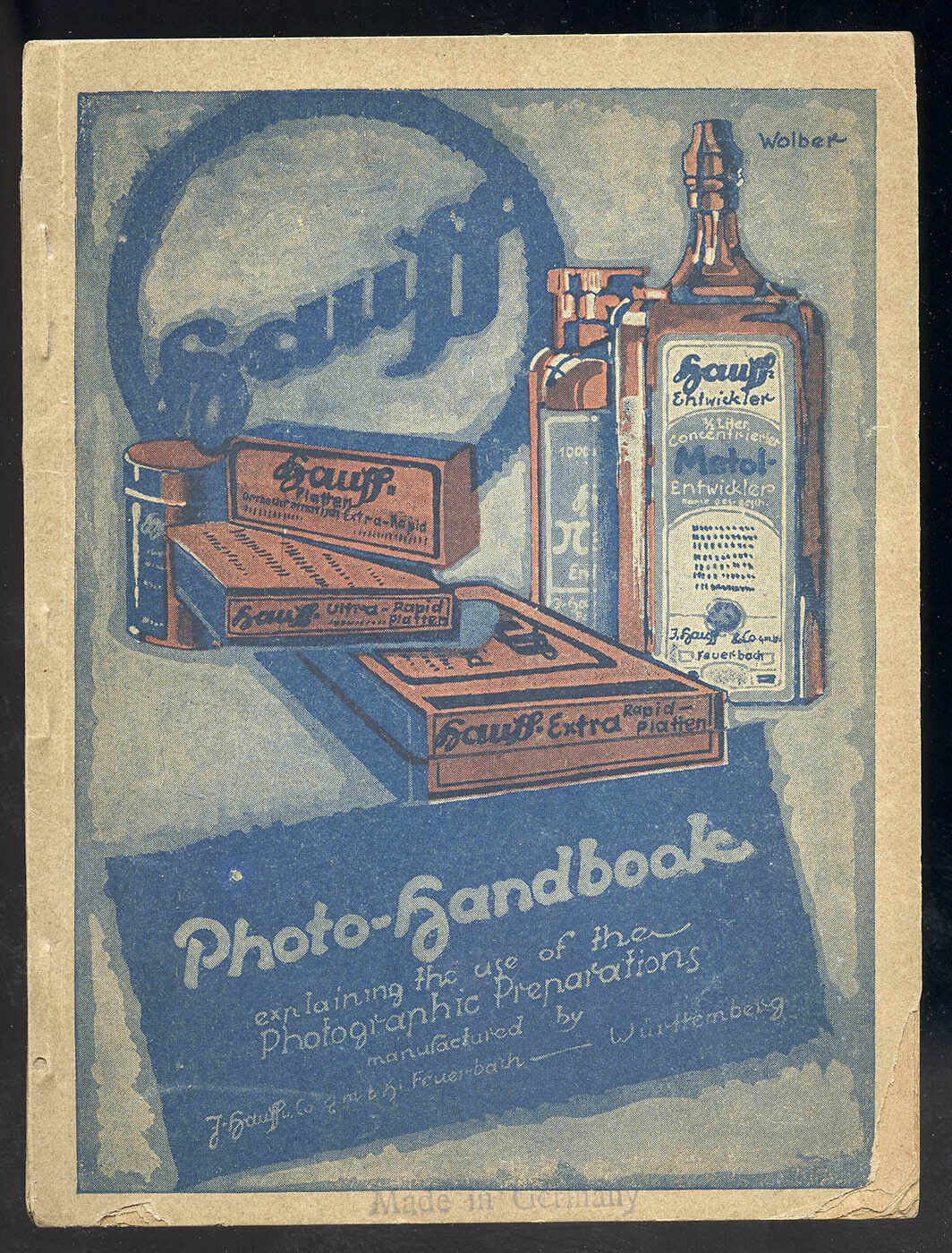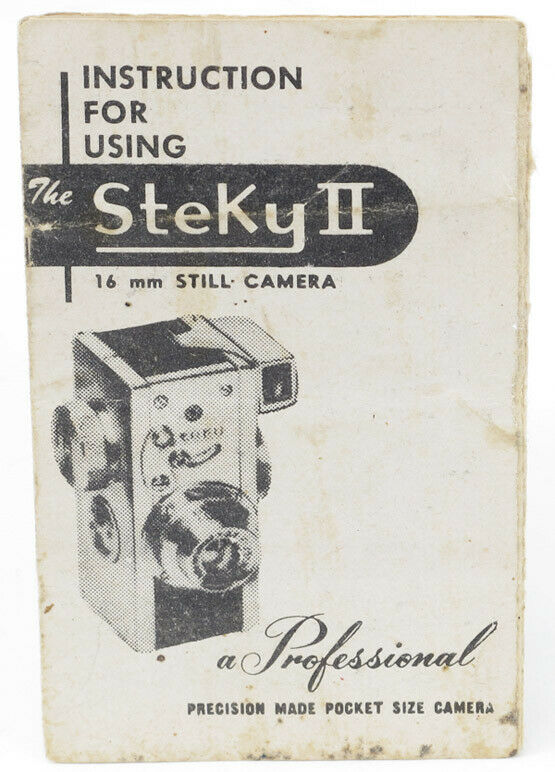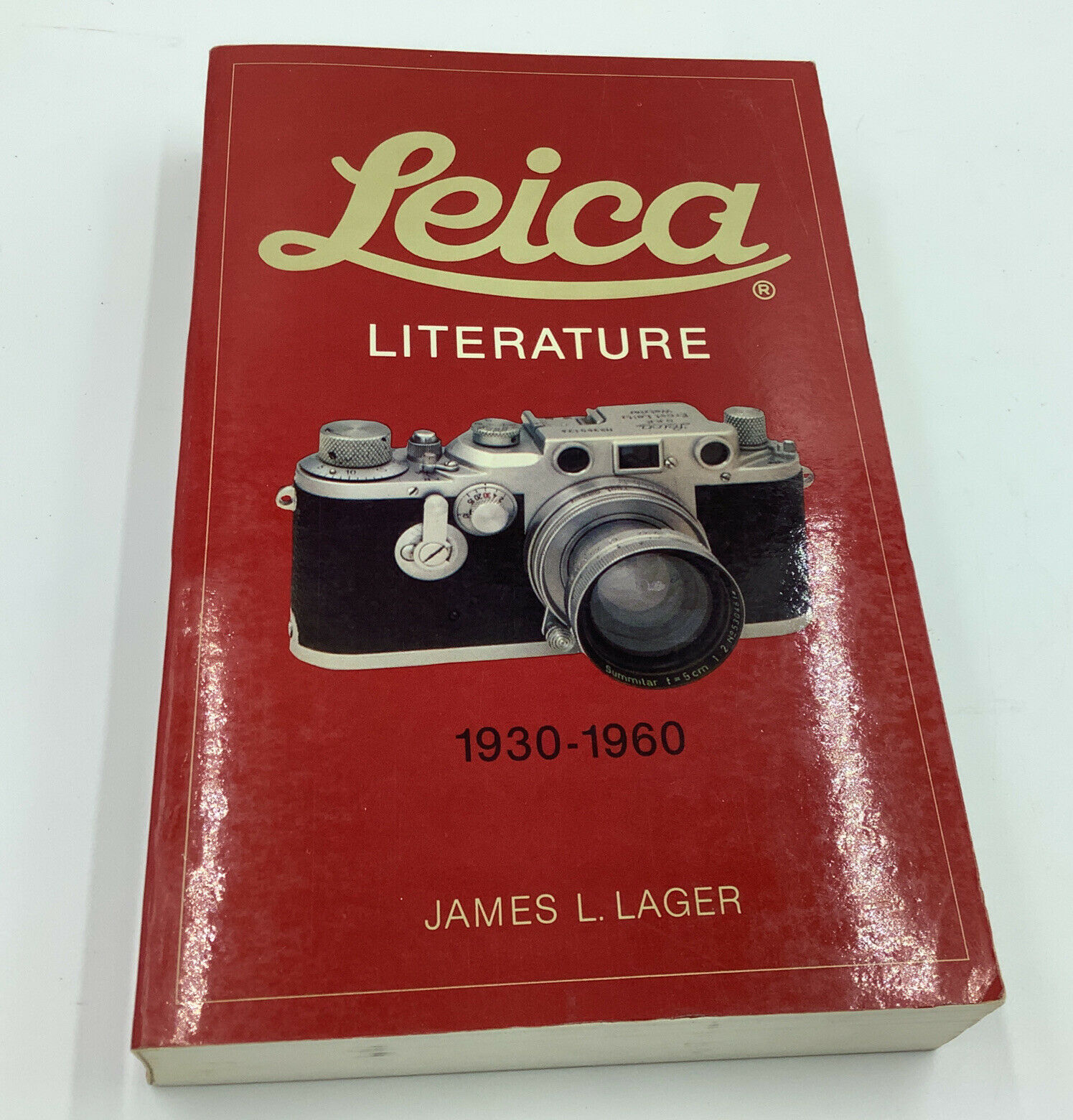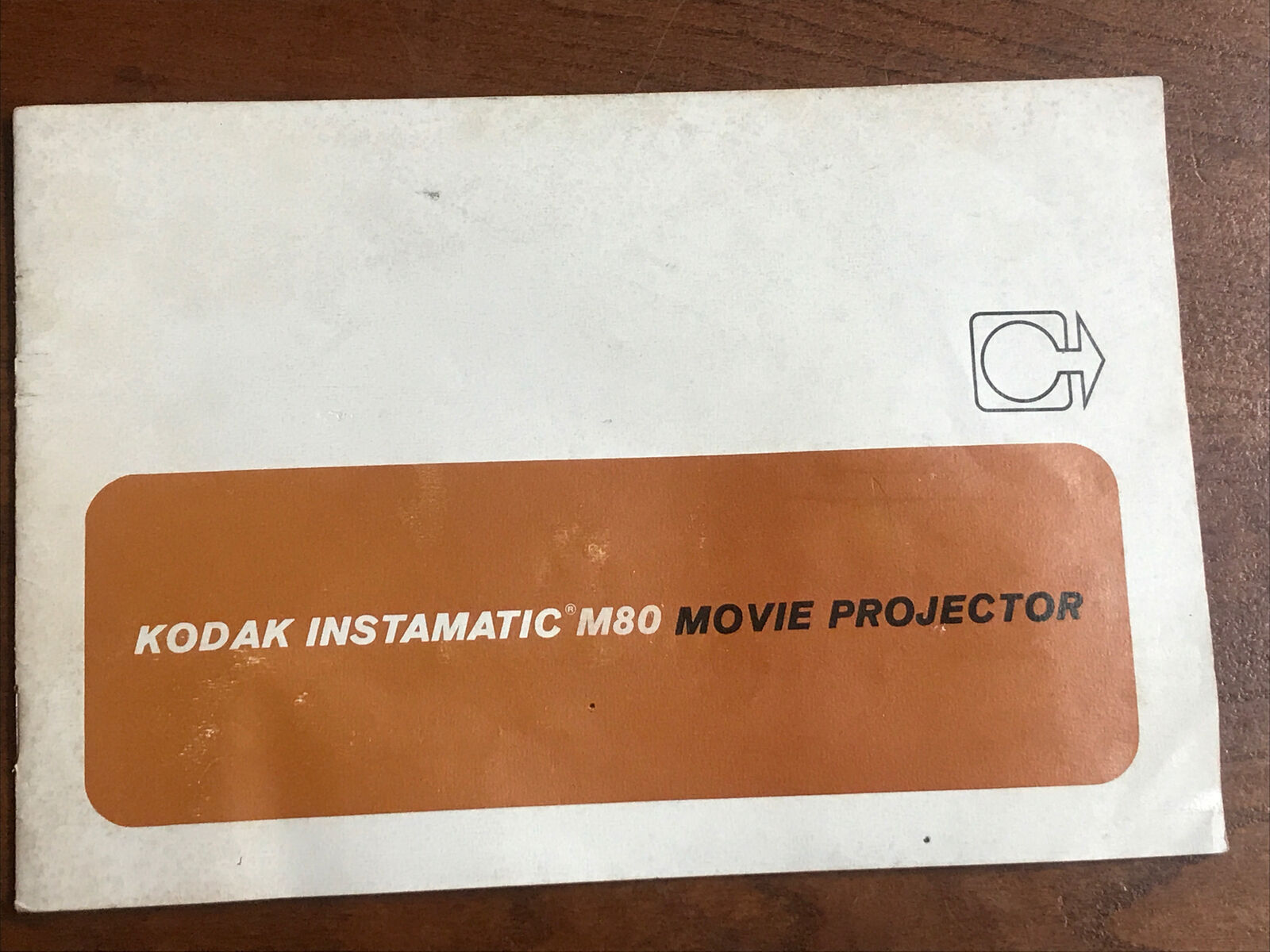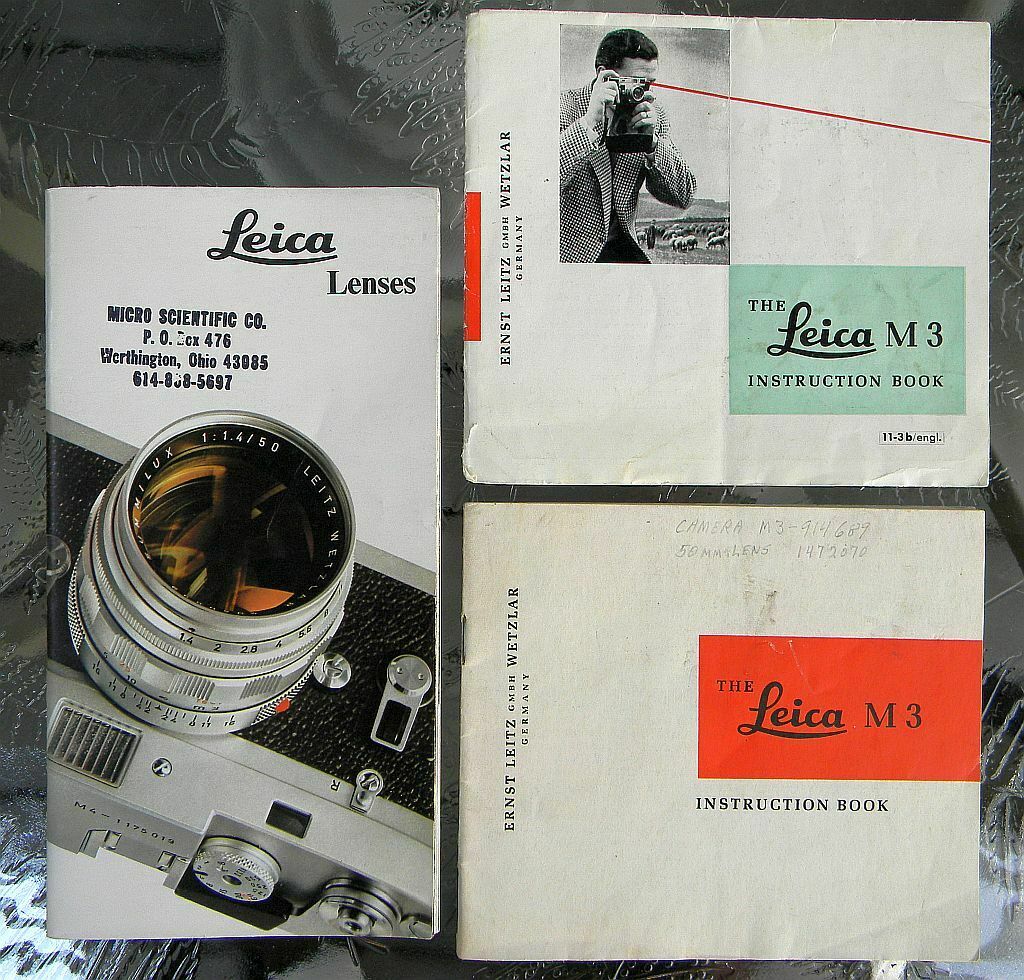-40%
Bolex Paillard H16 Reflex Movie Camera Brochure – late 1950s/early 1960s
$ 6.3
- Description
- Size Guide
Description
This is a fold-out brochure for the Bolex H-16 Reflex motion picture camera. When folded it measures approximately 3.25 x 6.25 inches. When completely unfolded it measures approximately 12 x 20 inches. It has 24 panels, with text and black & white photographs.Bolex International S. A. is a Swiss manufacturer of motion picture cameras. The most notable products of which are in the 16 mm and Super 16 mm formats. Originally Bol, the company was founded by Charles Haccius and Jacques Bogopolsky in 1925. Bolex is derived from Bogopolsky′s name. In 1923 he presented the Cinégraphe Bol at the Geneva fair, a reversible apparatus for taking, printing and projecting pictures on 35 mm film. He later designed a camera for Alpa of Ballaigues in the late 1930s.
Paillard-Bolex cameras were much used by adventurers, artists, as well as nature films, documentaries and are still favored by many animators. Over the years, notable Bolex users and owners include: Andy Warhol, Peter Jackson, Steven Spielberg, Jonas Mekas, Jean-Luc Godard, Antoine de Saint-Exupéry, James Dean, David Lynch, Marilyn Monroe, Edmund Hillary, and Mahatma Gandhi
While some later models are electrically powered, the majority of those manufactured since the 1930s use a spring-wound clockwork power system. The 16 mm spring-wound Bolex is a popular introductory camera in film schools.
The Bolex H16 camera played a central role in the work of many avant-garde filmmakers from the 1940s through the 1970s because of its precision and lightweight robustness and range of facilities, and the high quality of its optics, especially the zoom lenses, and its simple operation, which made possible an infinite combination of creative cinematographic choices. The Bolex H16 is probably the camera which most influenced a generation of experimental and documentary/ethnographic filmmakers.
